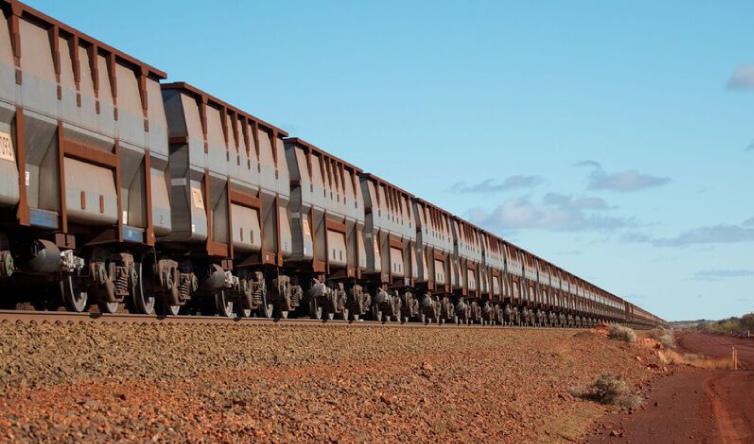Full steam ahead for Rio Tinto’s autonomous train project
- 16 January, 2018 14:59

Mining giant Rio Tinto says its autonomous railway project AutoHaul is making “strong progress” and on schedule to be complete by the end of the year.
The company operates around 200 locomotives which travel along 1,700 kilometres of track in the Pilbara region of Western Australia, transporting ore from 16 mines to four port terminals.
Its trains are now operated in ‘autonomous mode’ around 60 per cent of the time, although with a driver on board ready to take control, Rio Tinto announced in a statement today.
The completion of AutoHaul will allow the miner to increase its shipped iron ore tonnages to 353 million tonnes per annum by making the rail operation more efficient.
The $317.5 million contract for the development and delivery of the automated train management system including a highly-specialised modular signaling system was awarded to Ansaldo STS (a Hitachi Group company) in 2012.
Testing of AutoHaul began in earnest in 2014. The project suffered delays in early 2016, which Rio Tinto blamed on “software issues”.

In October last year the company revealed around half of ‘train kilometres’ were traversed autonomously. That month also saw the miner complete its first fully autonomous rail journey, when a train successfully completed a 100km pilot run from Wombat Junction to Paraburdoo without a driver on board.
“Gains from AutoHaul are already being realised including reduced variability and increased speed across the network, helping to reduce average cycle times,” Rio Tinto Iron Ore chief executive Chris Salisbury said at the time.
“Rio Tinto is proud to be a leader in innovation and autonomous technology in the global mining industry which is delivering long-term competitive advantages as we build the mines of the future. New roles are being created to manage our future operations and we are preparing our current workforce for new ways of working to ensure they remain part of our industry.”

